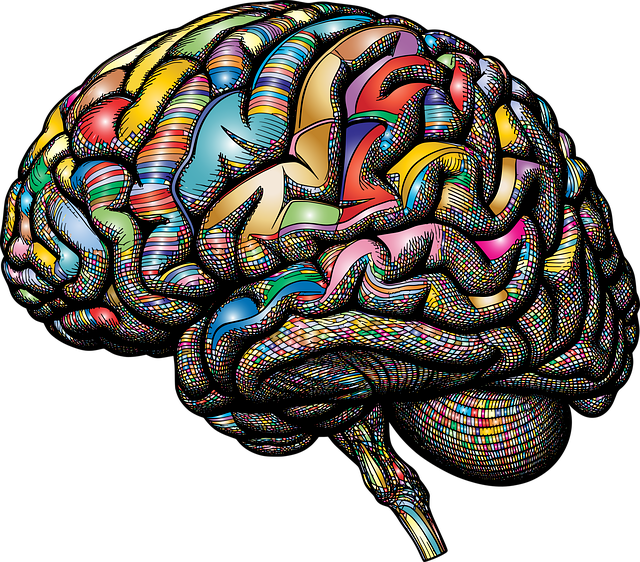Empowering Youth: Digital Tools for Mental Wellness Assessment with ADHD Considerations
Mental health self-assessment tools tailored for young adults with ADD/ADHD are transformative, offe…….
In the realm of mental health support, therapy plays a pivotal role in empowering individuals to navigate challenges and achieve their full potential. For young adults dealing with Attention-Deficit/Hyperactivity Disorder (ADD) or Attention Deficit Hyperactivity Disorder (ADHD), specialized therapeutic approaches have emerged as powerful tools for managing symptoms, enhancing focus, and fostering personal growth. This article delves into the world of “Therapy for Young Adults ADD-ADHD,” exploring its various facets, benefits, and the impact it has on shaping healthier, more productive lives. By the end, readers will gain valuable insights into this critical aspect of healthcare and its potential to transform lives.
Therapy for young adults with ADD/ADHD is a specialized form of behavioral and cognitive therapy designed to address the unique challenges faced by individuals aged 18-35 who have been diagnosed with these disorders. It focuses on improving executive functioning skills, such as time management, organization, goal setting, and emotional regulation, which are often affected by ADD/ADHD. The core components typically include:
The concept of therapy for young adults with ADD/ADHD has evolved over several decades. While the disorders have been recognized since the 1980s, early treatments often focused on medication management alone. However, growing awareness of the complex nature of these conditions led to a shift towards more holistic approaches. In the late 20th century, behavioral and cognitive therapies began to gain prominence, offering young adults targeted interventions tailored to their specific needs.
Today, this form of therapy is widely recognized as an essential component of comprehensive treatment plans, complementing medication where needed. Its significance lies in its ability to empower young adults with the skills to manage their symptoms effectively, improve academic and professional performance, and foster healthier relationships. By addressing underlying cognitive and behavioral challenges, therapy enables individuals to lead more fulfilling lives.
“Therapy for Young Adults ADD-ADHD” has transcended geographical boundaries, gaining recognition and adoption worldwide. According to a 2021 report by the World Health Organization (WHO), ADHD affects approximately 5.4% of adults globally, with rates varying across regions. This has spurred a corresponding interest in evidence-based therapeutic interventions.
The global market for mental health services, including therapy for young adults with ADD/ADHD, is experiencing significant growth. This expansion is driven by increasing awareness, changing societal attitudes towards mental health, and improved insurance coverage. According to a 2022 report by Grand View Research, the global ADHD treatment market size was valued at USD 17.4 billion in 2021 and is expected to grow at a CAGR of 7.5% from 2022 to 2030.
Private equity firms and venture capitalists are increasingly investing in mental health startups, including those offering innovative therapeutic solutions. This funding supports the development of new technologies, expands access to care, and drives innovation in treatment approaches. Many companies are focusing on digital therapeutics, leveraging mobile apps and online platforms to deliver personalized therapy interventions.
The economic impact of “Therapy for Young Adults ADD-ADHD” is multifaceted. On an individual level, successful therapy can lead to improved employment outcomes, reduced reliance on disability benefits, and better overall financial stability. For societies, it contributes to lower healthcare costs associated with untreated mental health conditions, increased productivity in the workforce, and decreased crime rates. Governments and insurance providers are recognizing the long-term benefits of investing in mental health services, leading to more comprehensive coverage and support for young adults with ADD/ADHD.
One of the most significant technological advancements is the rise of mobile applications designed to deliver therapy interventions directly to users’ smartphones or tablets. These apps offer personalized exercises, tracking tools, and access to digital therapists for real-time support. Telehealth services have also expanded, allowing individuals in remote areas to access specialized care remotely through video conferencing.
VR technology is being utilized to create immersive experiences that help young adults with ADD/ADHD learn to regulate emotions, practice mindfulness, and improve focus. This approach offers a novel way to engage individuals in therapeutic exercises, especially for those who find traditional talk therapy less appealing.
AI algorithms are being developed to analyze vast amounts of data, enabling the creation of personalized treatment plans tailored to individual needs. These systems can predict relapse risks, recommend specific interventions, and provide adaptive feedback, enhancing the effectiveness of therapy.
The future holds immense potential for technological advancements in “Therapy for Young Adults ADD-ADHD.” As technology continues to evolve, we can expect:
The development and delivery of “Therapy for Young Adults ADD-ADHD” are shaped by various policies and regulatory frameworks that vary across regions. These include:
These policies have a profound impact on shaping the landscape of “Therapy for Young Adults ADD-ADHD.” They ensure:
Despite its proven benefits, “Therapy for Young Adults ADD-ADHD” faces several challenges that hinder access and effectiveness:
To address these challenges, a multi-faceted approach is necessary:
A large university in North America implemented a comprehensive therapy program specifically tailored for students with ADD/ADHD. The program offered individual therapy sessions, group support meetings, and workshops on study skills, time management, and stress reduction. Over a two-year period, 75% of participating students reported significant improvements in academic performance, organization, and focus. Many also noted enhanced self-esteem and social interactions. This success led to increased university funding and the program’s expansion to other campuses.
A startup developed a mobile app offering personalized cognitive behavioral therapy for young adults with ADD/ADHD who aspired to become entrepreneurs. The app provided structured modules on goal setting, task management, and decision-making. A pilot study involving 30 participants showed remarkable results. After three months, over 80% of users reported improved productivity, reduced stress, and better financial management skills. Many went on to start successful businesses, attributing their achievements to the app’s supportive environment.
In a suburban community, a local non-profit organization started weekly support groups for young adults with ADD/ADHD and their families. The groups provided a safe space for sharing experiences, strategies, and emotional support. Participants reported increased feelings of belonging and improved coping mechanisms. Many also gained valuable insights from peers facing similar challenges, leading to better self-advocacy and problem-solving skills. This community-based initiative has since expanded to multiple locations, serving hundreds of individuals.
The field of “Therapy for Young Adults ADD-ADHD” is constantly evolving, with several emerging trends shaping its future:
To capitalize on these trends and ensure a bright future for “Therapy for Young Adults ADD-ADHD”:
In conclusion, “Therapy for Young Adults ADD-ADHD” is a dynamic and transformative field that offers hope and support to countless individuals grappling with ADD/ADHD. By understanding its historical context, global reach, economic impact, technological advancements, policy frameworks, and challenges, we can appreciate the intricate web of factors shaping this vital aspect of mental healthcare.
The case studies presented highlight the real-world impact of successful therapy programs, demonstrating improved academic outcomes, enhanced productivity, and better overall well-being. As we look ahead, the future holds immense potential for personalized, accessible, and innovative therapeutic approaches. By addressing current challenges and embracing emerging trends, we can ensure that young adults with ADD/ADHD have access to the tools and support they need to thrive.
Through continued research, collaboration, and advocacy, we can illuminate paths to success, empowering young adults to conquer ADD/ADHD and achieve their full potential.

Mental health self-assessment tools tailored for young adults with ADD/ADHD are transformative, offe…….

Mental wellness programs tailored for young adults with ADD/ADHD, combining cognitive-behavioral the…….

Mental Health Crisis Hotlines provide crucial support for young adults with Anxiety, Depression &…….